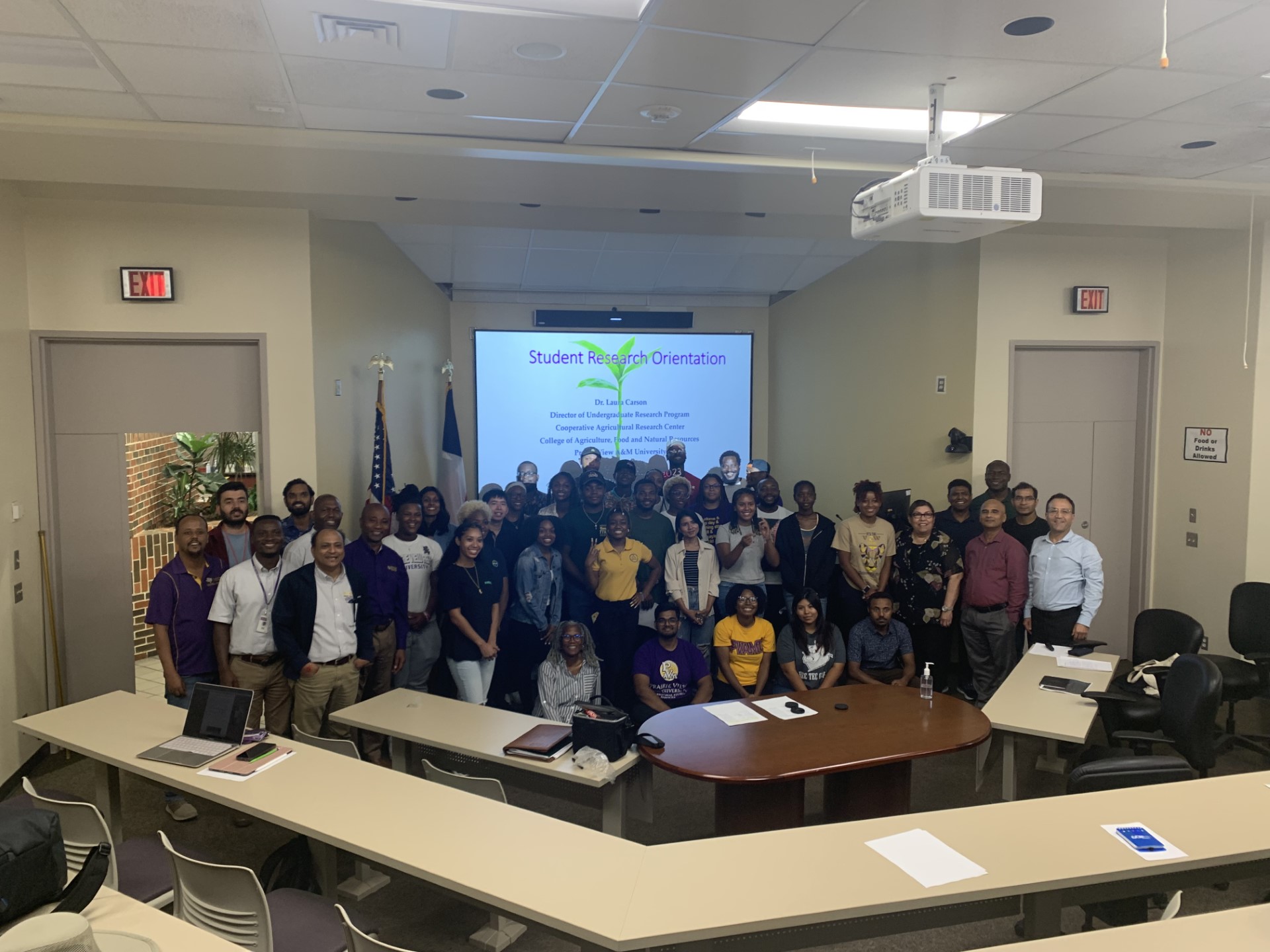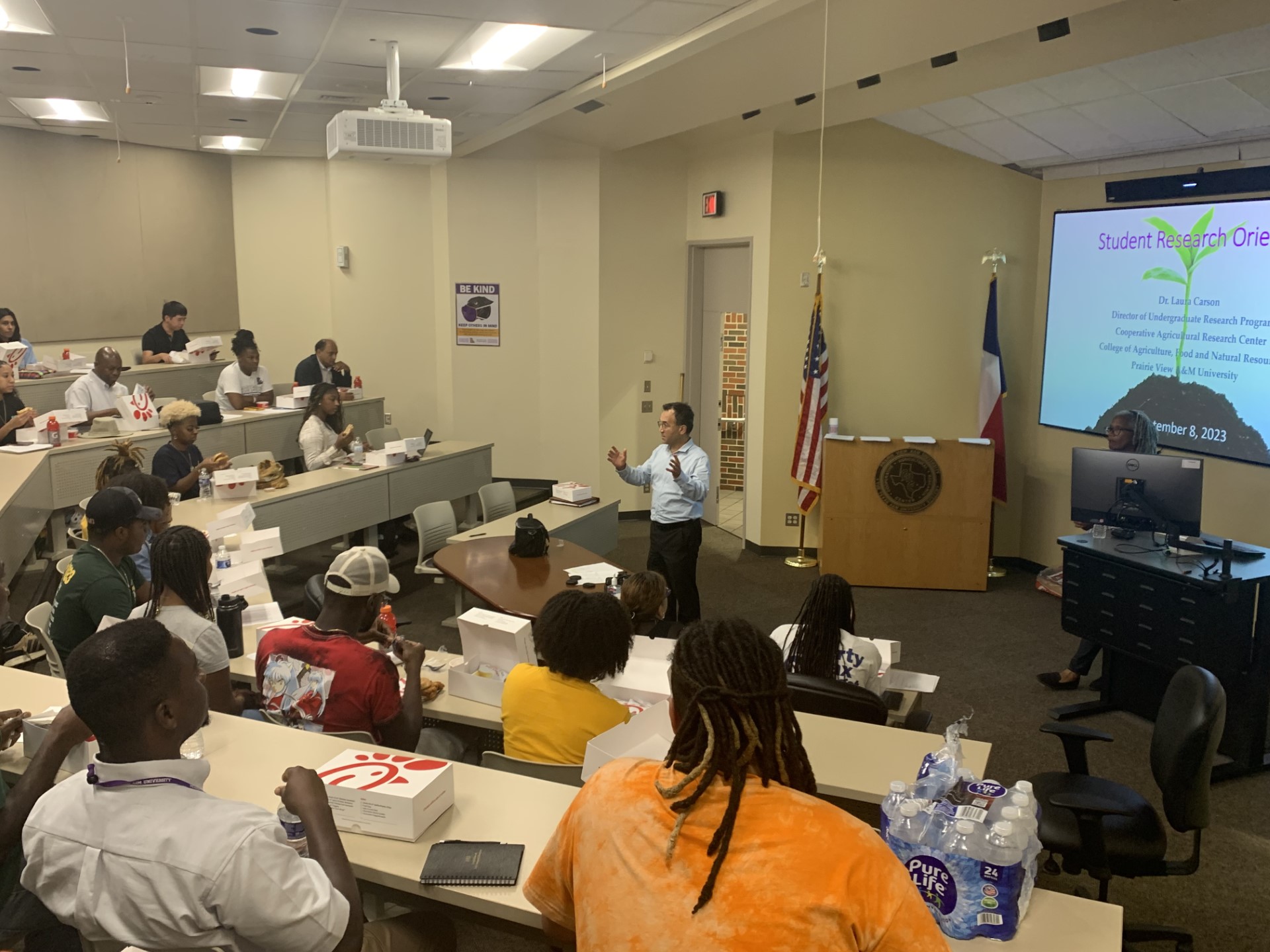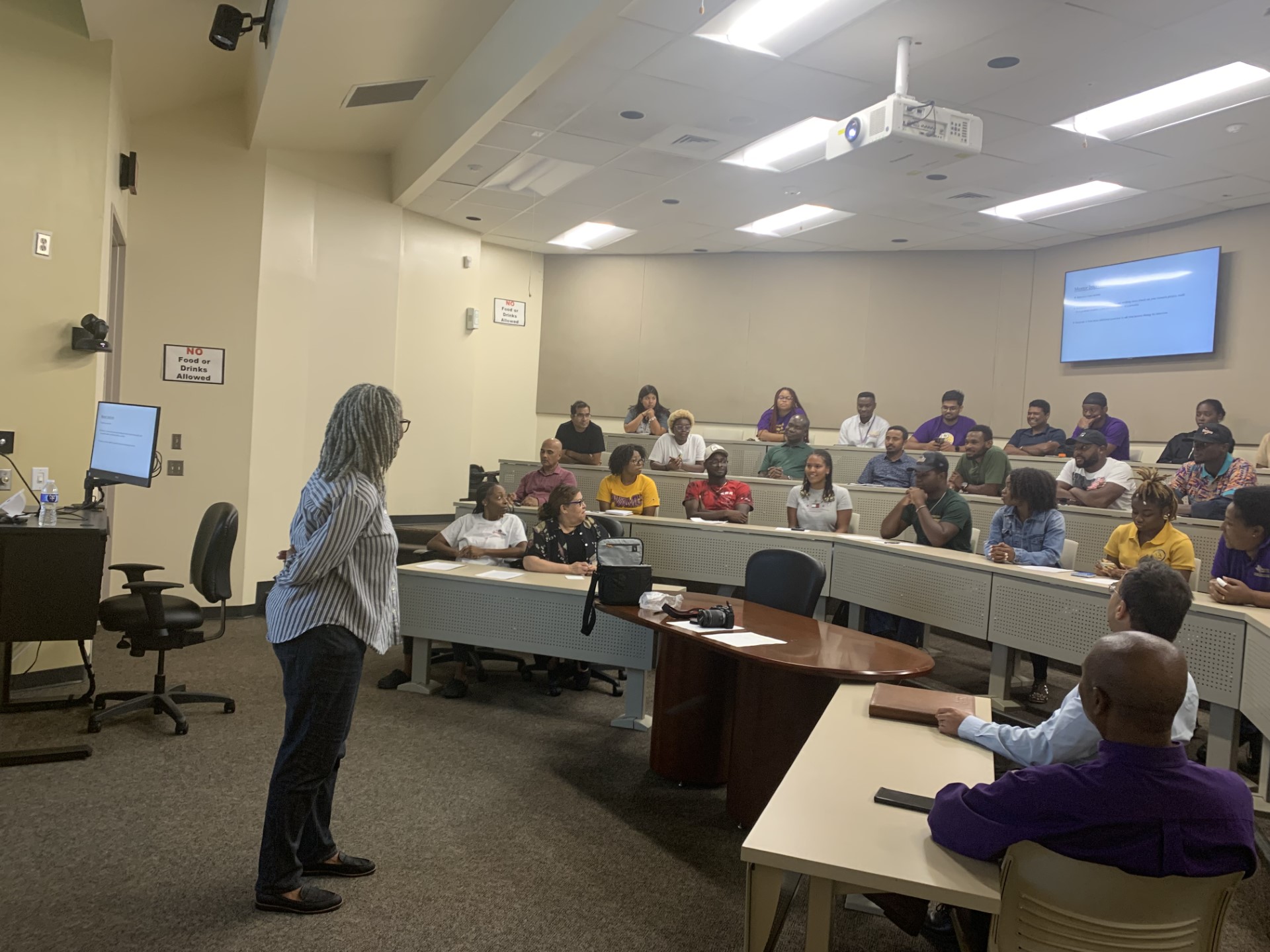With the new name of the College of Agriculture, Food, and Natural Resources (CAFNR), the Cooperative Agricultural Research Center (CARC) envisions a newly rooted student research engagement plan echoing Prairie View A&M University’s (PVAMU) President Tomikia P. LeGrande’s plan to provide three mentors for each student. The student research program is aligned with NSF as it seeks to expand student participation in both disciplinary and interdisciplinary research leading to the development of a workforce that reflects the demographics of the U.S. population.
In CARC’s approach, student researchers will gain a mentor through their active involvement in hands-on hypotheses-driven research activities. Laura Carson, Ph.D., director of student research, began the fall 2023 orientation session by discussing the benefits and expectations for the students, including how research can lead to building one’s technical, leadership, and communication skills as well as strengthening critical and creative thinking processes.
Drawing from many years of training student researchers, Dr. Carson reminded students to be punctual, maintain a level of mutual respect, and stay committed, engaged, and focused, leading to a successful pursuit of their research experiences. She empowered them to communicate often with their mentors by leading an exercise to aid in communication strategies.
Erdogan Memili, Ph.D., executive associate director for CARC, encouraged the 33 student researchers, inclusive of graduate students in the new Natural Resource and Environmental Science Masters’ Program (NRES), to stay engaged in their classroom studies as time management leads to improved academic excellence. He stated that the student’s interest in creative inquiry was inspiring and stressed the importance of students presenting their research results at national and international conferences and publishing in peer-reviewed journals.
Kwaku Addo, Ph.D., associate dean for CAFNR, welcomed the students and applauded their efforts in securing a high-impact educational practice experience. With the presence and support of research mentors encouraging their student researchers to attend the session, all student participants thought that the orientation was time well spent and over 90% indicated that the most useful activity was the opportunity to learn more about their mentors.
As for expected outcomes, students, most of whom are African American, will be empowered with knowledge and skills in contemporary research while developing other essential skills, including problem-solving and effective communication. The program will produce frontiers in science who will help shape the future of our country and the world.



